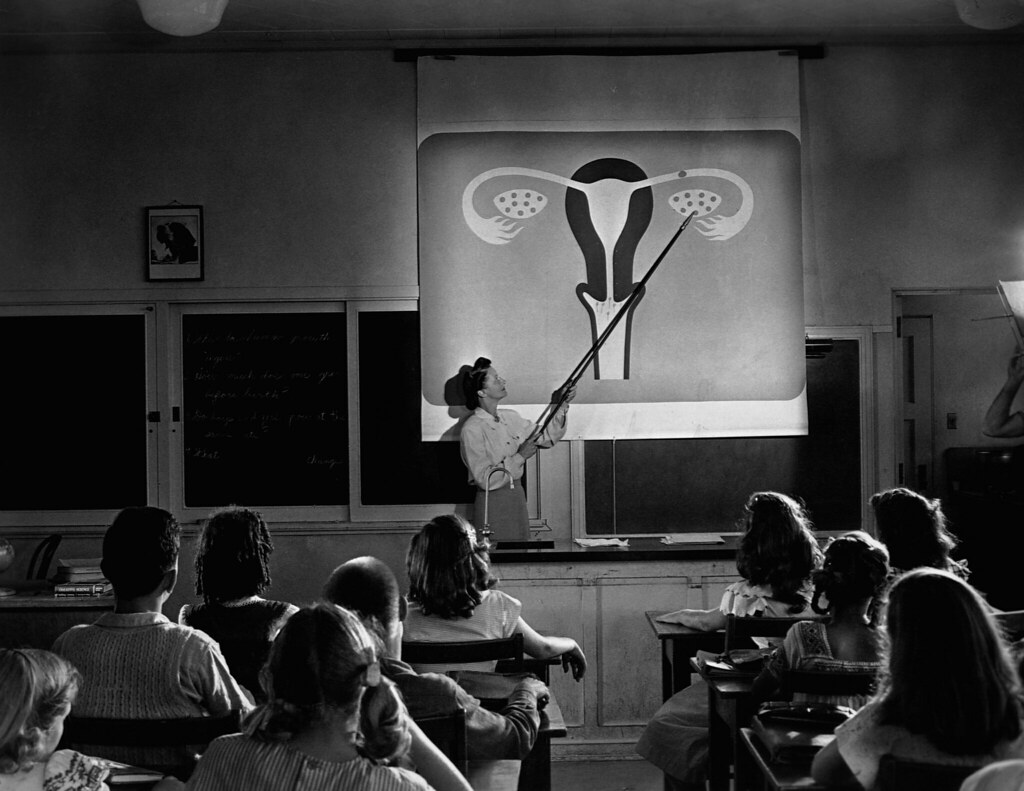
By: Frannie Edwards-Hughes
Currently, in the United States, 39 states require some type of sex education in schools. The U.S. has made significant progress in terms of legislation regarding sex education, but there are concerns about the curriculum being taught. Schools tend to approach sex education by preaching abstinence and often fail to address anything else. In fact, Planned Parenthood reports that only 18 states in the U.S. require that schools share information about birth control and that the information provided is medically accurate. They also report that only 10 states in the U.S. require discussion of LGBTQ+ sexual relationships. Even more horrifically, six southern states in the U.S. go as far as legally restricting the discussion of LGBTQ+ sex education. This narrow abstinence-only education is a complete failure for US children.
Sex education has long been a topic of tension between states. Some state legislators would prefer if students were not taught about sex at all, whereas others want students to get answers to questions they have about the topic. For decades people have debated how sex education should be taught, but most schools still only speak of abstinence and do not emphasize the idea that sex is a natural part of being a human. Sex education is about general anatomy apart from just sex, and restricting this information from young people has proved to be extremely harmful. Recent data from this fall shows that a dozen states have gotten rid of grants meant to monitor teenagers’ sexual behavior and try to limit STDs and teen pregnancies. Teens make up half of the people with STDs, which is partially a result of sex education being defunded and limited in schools. There is more to sex than just risk factors; anatomy and STD protection are extremely important and educators need to be able to recognize and teach that.
Students should not start college without learning about how to recognize and ask for consent, safe-sex methods, LGBTQ+ sexual health, and birth control methods, let alone understanding sexual reproduction. Legislatures are not revising outdated methods of sex education, depriving the nation’s young people of the guidance they need. However, not all schools are sticking to old methods, and places across the U.S. have begun to embody a sex-positive attitude.
Some recognize this lack of knowledge and are working toward better sex education. The University of Puget Sound is actively working to reduce the stigma around sexual education and to teach about other sexual paths than just abstinence. Counseling, Health & Wellness Services (CHWS) is making a conscious effort to answer students’ questions on sex and combat the inaccurate information that many college students received throughout their high school education.
On October 24, CHWS held an event called “Not Your High School Sex Ed Talk.” This space offered a time for students to get their questions about sex answered by a qualified panel of counselors and sex educators. Students could submit their questions anonymously, or jump in and ask them out loud at the event. The atmosphere was remarkably open and accepting, and free pizza and candy were graciously provided to everyone. Students asked questions about how they could avoid STDs and pregnancy, birth control and its side effects, the possibility of male birth control, and healthy masturbation habits. CHWS actively encouraged students to reach out and contact a counselor to ask questions or voice their worries. This was a valuable experience and should be the standard for sex education in schools. It is critical that the citizens of the United States unite and urge legislators to guarantee the quality of sex education that is taught in all schools, including teaching students accurate and healthy knowledge about sex.
